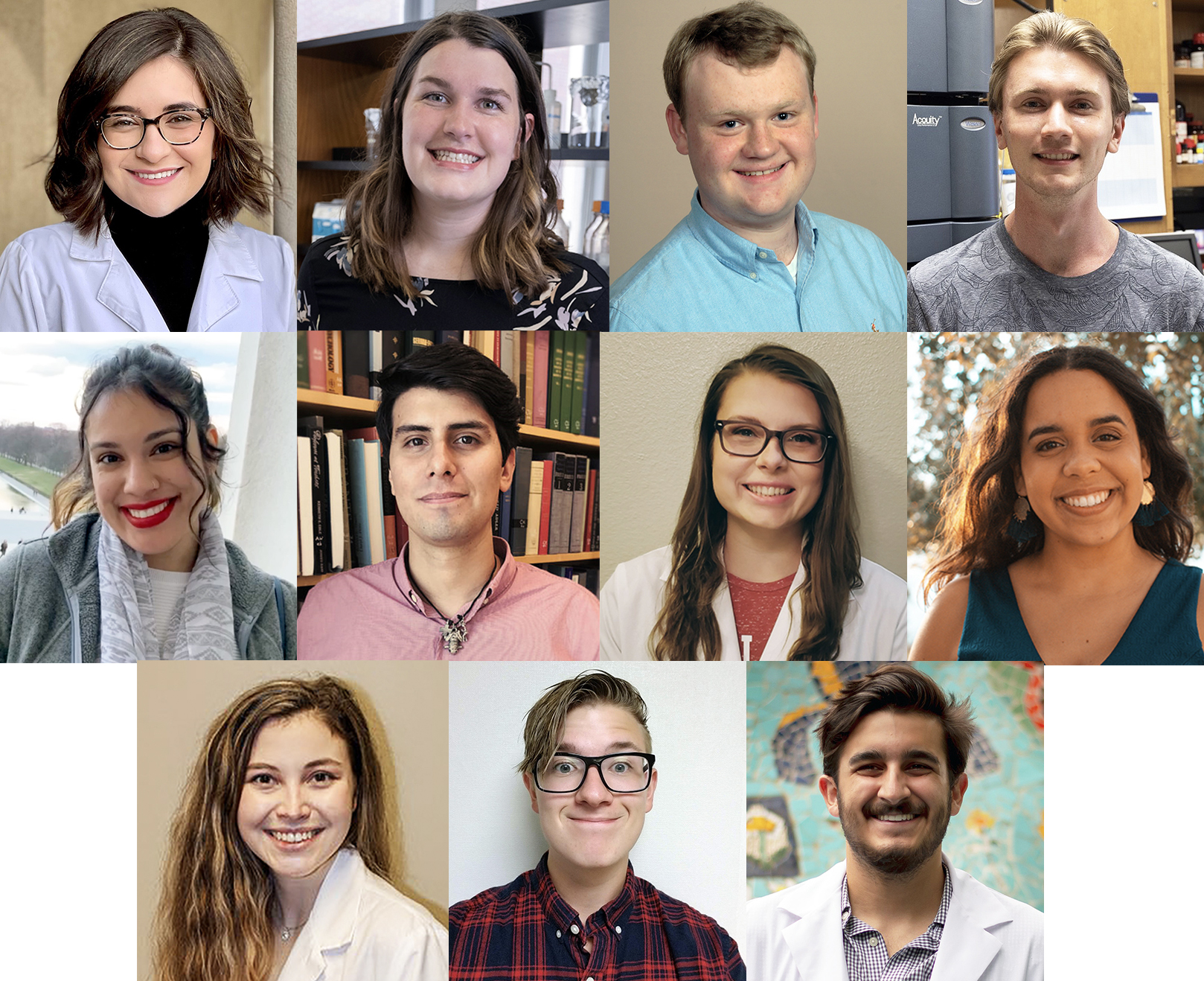
By Emily Overway
The National Science Foundation Graduate Research Fellowship Program is a highly competitive program that awards grants annually. Fellows doing research in NSF-supported areas within science, technology, engineering, or mathematics receive a three-year annual stipend of $34,000, as well as a $12,000 allowance for tuition and fees. Approximately 2,200 fellows are selected each year from an applicant pool of around 13,000.
For the 2022 cycle, six Vanderbilt biomedical Ph.D. students and one undergraduate student in a biomedical lab were awarded the NSF GRFP fellowship. Additionally, five biomedical Ph.D. students received an honorable mention.
The biomedical Ph.D. awardees were:
- Blake Baleami, Chemical and Physical Biology. Vito Quaranta lab. Not photographed.
- Andreanna Burman, Cell and Developmental Biology. Jim Goldenring lab.
- Drew Dixson, Cell and Developmental Biology. Alissa Weaver lab.
- Kevin McCarty, Biochemistry. Fred Guengerich lab.
- Teresa Piedad Torres, Microbe-Host Interactions. Mariana Byndloss lab.
- Jose Zepeda, Pharmacology. Brad Grueter lab.
The biomedical undergraduate awardee was:
- Minna Apostolova, Biochemistry and Chemical Biology major. Mary Philip lab.
The biomedical Ph.D. honorable mentions were:
- Kaeli Bryant, Microbe-Host Interactions. Tim Cover lab.
- Julissa Burgos, Cell and Developmental Biology. Matt Tyska lab.
- Heather Hartmann, Molecular Pathology and Immunology. Vivian Weiss lab.
- Reese Martin, Biological Sciences. Ann Tate lab.
- Zach Sanchez, Cell and Developmental Biology. Dylan Burnette lab.
In addition to the Basic Sciences awardees, the NSF also granted 19 engineering students GRFP fellowships.
The NSF GRFP has been supporting graduate students since 1952. The fellowship program contributes to NSF’s overall goal of developing a globally engaged workforce that will ensure the nation’s leadership in advancing science and engineering research and innovation. The GRFP is committed to increasing the diversity of the STEM workforce by aiming to fund women, underrepresented minorities, persons with disabilities and veterans from a wide geographic distribution.
For students interested in applying for the NSF GRFP in the future, Kim Petrie, assistant dean for biomedical career development in Basic Sciences, hosts a three-part workshop each year to aid students in the application process. These workshops give applicants opportunities to interact with previous winners, provide tips for tackling the more difficult parts of the application, and provide feedback on written drafts. Those interested in participating should keep an eye out for an announcement about this year’s workshops around July.